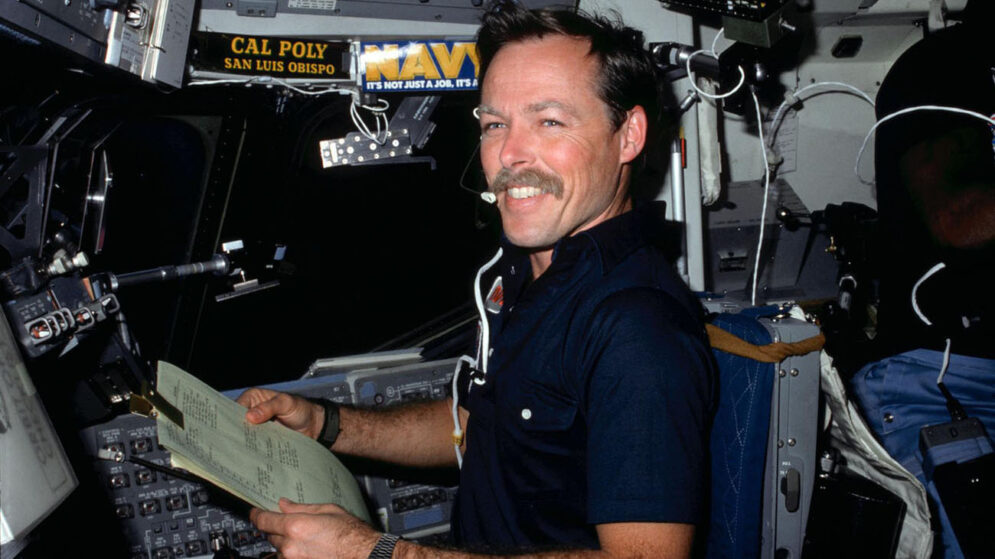Journey to the Stars
A timeline of Cal Poly’s role in humankind’s journey to reach for the stars.
1927
Aeronautics becomes a course of study at Cal Poly’s Junior College Division. The aeronautical laboratory was developed in addition to the automotive labs.
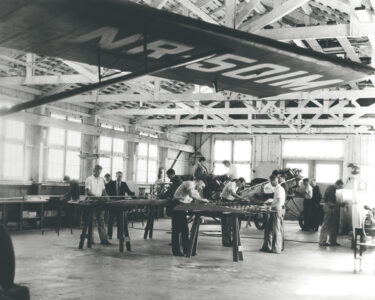
1942
Minato Kawaguchi is the first aeronautical engineering major to graduate two years after Cal Poly began awarding four-year bachelor of science degrees. His senior project on aircraft fuels is still on file at Kennedy Library.
1965
Elbert “Burt” Rutan (Aeronautical Engineering ’65) pens his Cal Poly senior project and wins the American Institute of Aeronautics and Astronautics National Design Award. The honor enables him to meet Wernher von Braun, which inspired him as he eventually launched the first non-government crewed space program.
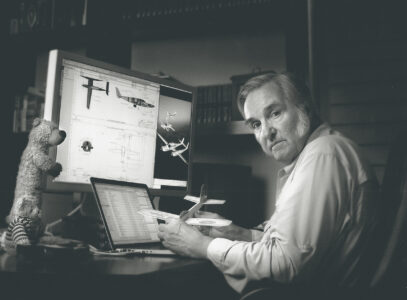
1984
Robert “Hoot” Gibson (Aeronautical Engineering ’69), a decorated naval pilot, becomes the first Cal Poly graduate to travel to space as a NASA astronaut aboard the space shuttle Challenger.
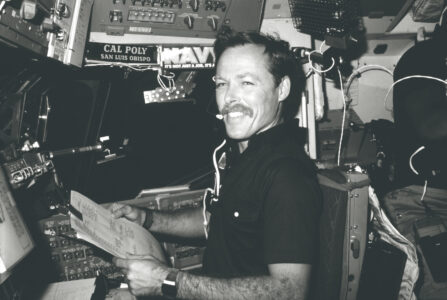
1998
Frederick “CJ” Sturckow (Mechanical Engineering ’84) pilots the space shuttle Endeavour on the mission to officially begin construction of the International Space Station.
1999
The Aeronautical Engineering Department
changes their name to Aerospace Engineering
to better reflect the current program offerings.
Students can now study propulsion, systems and
orbital mechanics, among other facets of space
exploration.
2004
SpaceShipOne, designed by alumnus Burt Rutan and Scaled Composites, makes history by flying over the Mojave Desert at an altitude of 62.5 miles and landing safely. It is the first privately financed, crewed rocket to reach space.
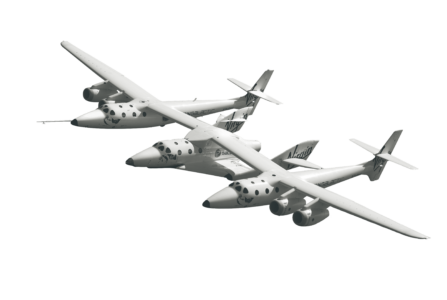
2007
The CubeSats CP3 and CP4 successfully reach low Earth orbit. Students travel to Kazakhstan to hand-deliver the satellites to the Baikonur Cosmodrome ahead of the launch.
2008
Greg Chamitoff (Electrical Engineering ’84) launches into space for the first time as a mission specialist aboard the space shuttle Discovery.
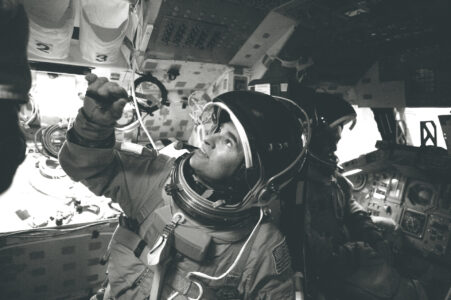
2009
The Society of Experimental Test Pilots honors Peter Siebold (Aerospace Engineering ’01) for his engineering work on the SpaceShipOne Program and for piloting and directing the flight of the zero-gravity White Knight Two aircraft.
2010
Michael Alsbury (Aerospace Engineering ’98) co-pilots Virgin Galactic’s SpaceShipTwo for its first unpowered glide test. The experimental plane was released from its carrier aircraft several miles above Earth.
2011
The Cal Poly CubeSat program conducts its first launch with NASA’s CubeSat Launch Initiative from Vandenberg Air Force Base in March. Students in the program continue to monitor and support its CubeSats using antennae positioned on campus.
2016
Bill Nye, the CEO of the Planetary Society, visits Cal Poly to test deployment of the solar-powered space propulsion system LightSail 2. Students and faculty continue to play a key role in the testing and software of the publicly funded LightSail project.
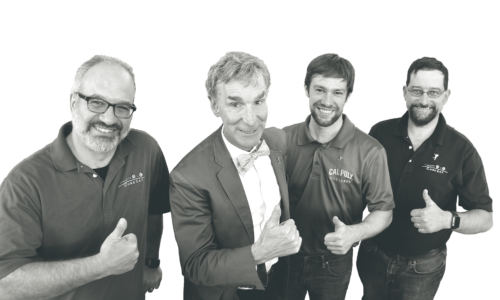
2019
Cal Poly serves as a ground station supporting the Planetary Society’s LightSail 2 as it officially unfurls its solar sails while orbiting Earth.
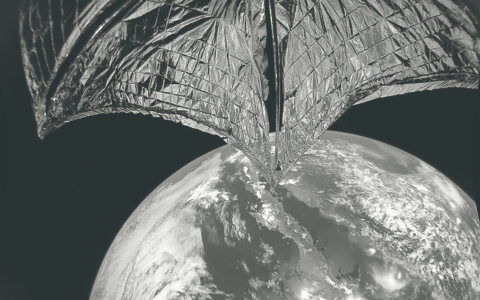
2019
Cal Poly becomes the first university to ink an agreement to assist U.S. Strategic Command to monitor objects orbiting Earth. The accord formalizes a years-long partnership with Vandenberg-based 18th Space Control Squadron that catalogs and tracks more than 23,000 objects orbiting the planet.
2020
Cal Poly is among 10 universities teaming up with NASA to use small satellites for lunar exploration on the Artemis campaign.
2020
Victor Glover (General Engineering ’99) pilots the SpaceX Crew Dragon capsule “Resilience” in its first contracted, fully operational mission contracted for NASA ahead of a six-month stay aboard the International Space Station.
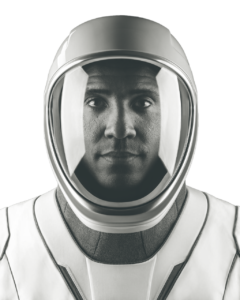
2021
Physics professor Vardha Bennert is part of two research projects aboard the groundbreaking James Webb Space Telescope.
Your Next Read
From a childhood in the skies to orbital spaceflight, Cal Poly’s first alumni astronaut used Learn by Doing to carry him ever higher.
Travel the cosmos with an interstellar playlist curated by KCPR’s student music director.


